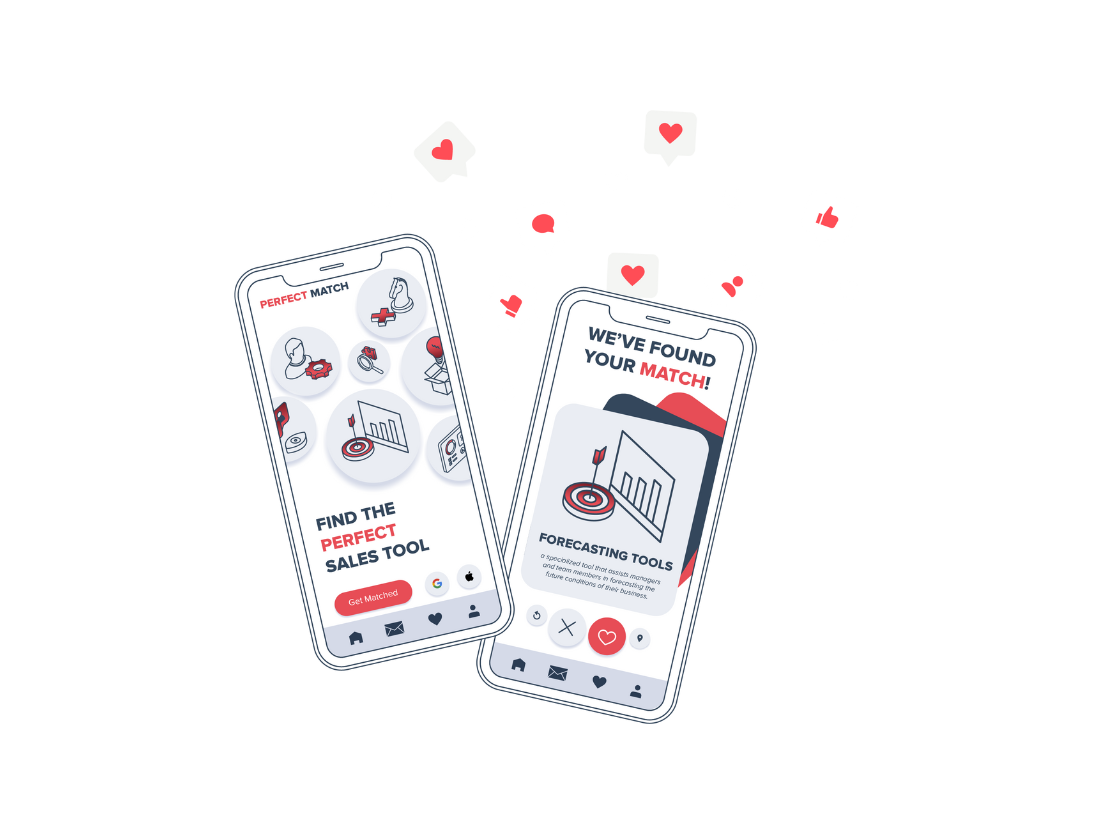Should your sales team be using Customer Relationship Management (CRM) software? Heck yes! From automating repetitive tasks to landing more deals, we cover the top 5 reasons why CRM is so important to sales.
How CRM software solves common sales problems
Spending time with the wrong prospect is a common and expensive challenge for sales teams. Expensive because that time could be better spent landing deals and growing your business.
To solve this, companies are embracing Customer Relationship Management (CRM) software to help them prioritise their sales activities and qualify and follow up on leads.
In fact, CRM software does such a good job at overcoming sales challenges that 91% of companies with over 11 employees have a CRM solution. Reflecting CRM’s incredible business value, the CRM industry has risen to become the biggest software market in the world.
But despite CRM’s potential to boost efficiency and sales, unlocking these benefits requires more than technology investment. To find out what else is required, check out our blog here. In it, we unpack why onboarding your team and using CRM to improve business processes is key to successful CRM implementation. After successful implementation, organisations quickly discover that CRM is their most important sales tool.
5 reasons why CRM is so important to sales
As sales and CRM specialists, we’ve seen many companies use CRM to land more sales at a faster rate. Here are five ways that CRM can benefit your sales team.
Robust CRMs track leads as soon as they enter your prospect database and as they progress through your sales and marketing process. This leads to better alignment between marketing and sales, and ensures that leads don’t ‘fall through the cracks.’ For more on CRM marketing benefits, read our article on why your CRM is critical to marketing success.
The HubSpot CRM automatically tracks leads through each lifecycle stage. Once a lead becomes sales qualified, HubSpot will notify your sales team to contact them. Once your lead is contacted, they’ll be moved into the sales opportunity category. From there, your salespeople can focus on converting them into customers.
- A holistic view of the customer:
To win customers, you need to show them how your product solves their problem. This means understanding their perspective and what they think of your offerings. Fortunately, all-in-one CRM platforms give you a 360-degree view of your prospects by tracking all touchpoints that they’ve had with your company.
These holistic views are like cheat sheets that tell you how prospects have interacted with your company in the past. This information arms your sales teams to quickly and effectively address prospect queries. It also lets you personalise your messaging for the greatest sales impact.
- Automate administrative tasks:
Is your team manually generating sales forecasts in Excel spreadsheets? CRM can automate that, along with other functions like workflows, order processing and preparing quotes. By streamlining the entire sales cycle, CRM lowers production costs while freeing up your salespeople to close more deals.
For example, sales prospecting can involve manually running the same searches on channels like LinkedIn or Google — a process that’s so tedious that it’s easy to scroll past quality prospects without spotting them. With the right custom filters, this can be automated, with a prospect prequalified list being regularly sent to your inbox without any effort.
- Pipeline optimisation and reporting:
CRM provides full visibility into the health of your business with clear sales pipelines and reporting. With your CRM’s analytical tools, you can identify opportunities to optimise your processes and create better customer experiences.
Let’s imagine that your company has recently implemented a CRM. By measuring your pipeline, CRM reporting shows a sales bottleneck — too many qualified leads are dropping out of the lead nurturing stage. After a meeting with your sales and marketing teams, you figure it out; your leads aren’t being directed to content that feels relevant to their context. To overcome this issue, your team uses their CRM-enhanced customer views to segment leads and personalise how content is delivered to them.
The beauty of top CRM solutions is that you can customise them to fit your business needs. This is a powerful feature as it means that you can leverage your CRM to adapt to any part of your sales process. This customisation extends to other benefits on this list including task automation, lead management, reporting and pipeline optimisation strategies. Tailoring your sales efforts to meet your customer’s specific needs is another example of a significant sales feature that’s gained through CRM.
Say you want to track a product that’s being delivered to your customer. Instead of subscribing to another service to create, process and track orders, your salespeople can create a custom function in their CRM that fulfils the same function.
CRM — the top sales tool
In the modern sales arsenal, few tools are as important to sales as CRM. From task automation to personalised sales efforts, CRM can transform your sales process, leading to more revenue and business growth.
But CRM can improve more than just your sales. We’ve developed a guide to help you understand how CRM can impact all aspects of your company — and to show you how you can get maximum value from your CRM system.
Download our guide to learn:
-
What to look for in your CRM solution
-
How to use CRM to attract, engage and retain customers
-
The four steps to effective CRM communication
-
Which department should be in charge of your CRM
-
Top questions to ask yourself before diving into CRM
Ready to use CRM to unlock the true potential of your company? Download our eBook by clicking below.
.png)












